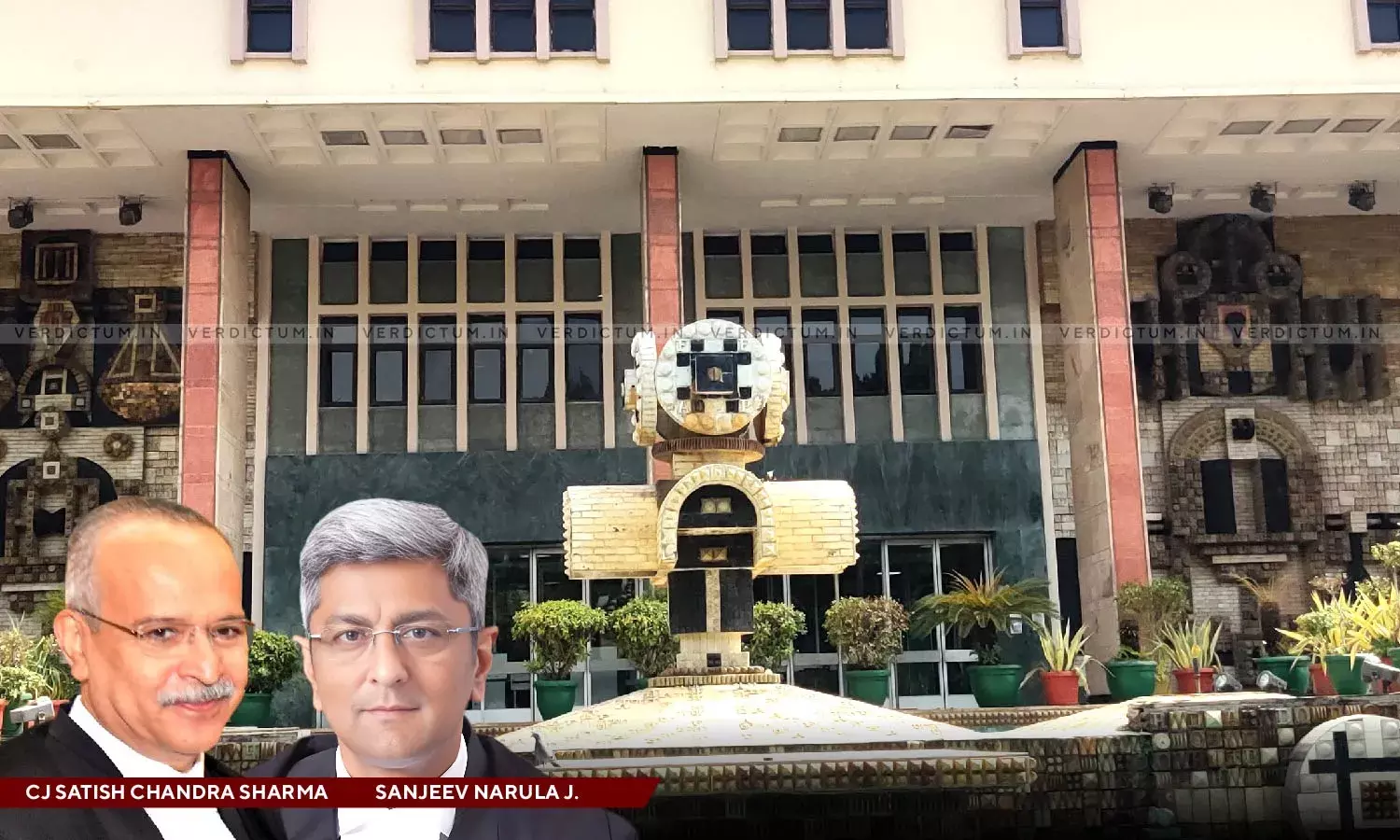Delhi HC Quashes Kendriya Vidyalaya Ad For Teaching Jobs, Says Ad Was Discriminatory; Restricts Participation Of People With Disabilities

A Delhi High Court Bench of Chief Justice Satish Chandra Sharma and Justice Sanjeev Narula has weighed down on the Kendriya Vidyalaya Sangathan for restricting the participation of People with Disabilities in the recruitment process and ordered them to strictly implement the 4% reservation mandated by The Rights of Persons with Disabilities Act, 2016 (RPwD Act).
In that vein, it has passed directions to KVS to conduct an audit of the total number of vacancies and prepare a "vacancy-based roster" for the recruitment of persons with disabilities, within a period of 3 months.
In light of the same, the Court set aside the advertisement issued by KVS and issued directions.
Senior Counsel SK Rungta and Counsel Prashant Singh appeared for the National Federation of the Blind, while Counsel S Rajappa and Counsel R Gourishankar appeared for KVS. CGSC Monika Arora, among others, appeared for the State.
In this case, the Court was hearing a plea filed by the National Federation of the Blind, who were aggrieved by the non-implementation of statutory reservation for Persons with Disabilities, particularly for the blind persons, in the recruitment process of KVS.
The Court observed that the actual vacancies reserved for persons with disabilities would fall disproportionately short of the total number of vacancies and would never meet the 4 percent criteria, as envisaged per Rule 11 of the Rights of Persons with Disabilities Rules, 2016.
In that context, it was said that, "The computation method, as discussed above, makes it unambiguously clear that the identified posts come into picture only after recruitment and only at the time of actual appointment. At the stage of recruitment and advertisement of vacancies, the respondent is duty bound to reserve 4 percent of the total number of vacancies, inclusive of vacancies against identified as well as unidentified posts. Once recruited, appointment can be made against the posts identified as suitable for respective categories of persons with disabilities. Even otherwise, it would be absurd to carry out calculation of 4 percent against identified posts only. In such a manner, the actual vacancies reserved for persons with disabilities would fall disproportionately short of the total number of vacancies and would never meet the 4 percent criteria, as envisaged."
Relying on the case of State of UP vs Singhara Singh, the Court reiterated that when the manner of performance of an act is prescribed by law, the 2016 Act in this case, such act is to be performed in that manner only, or not at all.
Reflecting on the status quoist approach on the part of the departments and establishments, the Court said that, "We may regretfully note that despite the passage of almost four decades of the movement, one United Nations’ Convention and two legislations passed by the Parliament, we are struggling to fulfil our promises made to the persons with disabilities as our fellow citizens. The journey so far has tried to achieve twin objectives – fulfilment of constitutional promises and reformation of mindsets. However, every now and then, seemingly settled issues resurface in the recruitments opened by different departments or by different governments. Every time a judicial forum is asked to revisit and reiterate the same principles, that too for the protection of the vulnerable sections, it only reflects a status quoist approach on the part of the departments and establishments. The legislature has taken a commendable leap with the enactment of 2016 Act, but the process of implementation of the legislative wisdom is challenging."
In that vein, the Court further recommended that, "For, reformation of mindsets is a gradual process. From 1995 to 2016, the legislative wisdom experienced a significant growth. However, the status quoist approach in implementation of the legislation in its true spirit still prevails. We are reminded of the classic French expression - Plus ça change, plus c'est la même chose – which means “the more things change, the more they stay the same”."
Cause Title: National Federation of the Blind v. Kendriya Vidyalaya Sangthan & Ors.
Click here to read/download the Judgment

